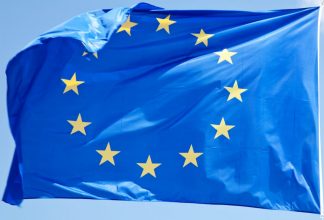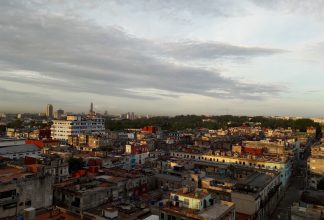Warning the EU: Cuba Will Not Comply with Anything
Letter #18 by Henry Couto Guzmán.
In July 2019, Civil Rights Defenders invited Cuban human rights defenders and civil society organisations to contribute with texts on how the European Union should work towards Cuba. This letter is written by Henry Couto Guzmán.
Warning the EU: Cuba Will Not Comply with Anything
Since its origins, the European Union has defended, protected and promoted the preservation of peace and international security. The promotion of international cooperation and the development and consolidation of democracy, the rule of law and human rights, explicitly include the sustainable development of other topics of great importance for Europe and the world in general. It works, from my point of view, as a genuine State of Law which acknowledges human beings as its top priority.
Those are the basic objectives of the European Union, but how could these objectives work with Cuba, a country that was aligned with the old socialist bloc, and from which it inherited a dictatorship and all aspects of totalitarianism?
I think the government of Cuba is not interested in any of the real objectives of the European Union, because the Cuban government is only interested in the economic side. The European Union has sent millions of euros to Cuba for development programs, but so far, those programs have not had an effect in society.
The Cuban government continues to ignore the basic rights of people, and there are victims that fear to denounce what has happened to them. The government invests more and more in military and tourism infrastructure. Tourism is controlled by the military, so we know where the profits go.
If there were to be a Cuba-EU accord, it would be a farce for Cuba to continue receiving funds for its political development and not for the social development of the nation. I suggest, that to implement the agreement, the EU act to verify its clauses in a direct and effective manner, in particular those related to political matters and the rights of the people.
The European Union, in its potential relationship with Cuban entities, would face a big challenge in forging a community based on rights and the defence of all liberties. Cuba has institutions that exist because of the Communist Party; 60% of people who work for Cuban institutions are affiliated to the Communist Party, the Union of Young Communists (UJC) or the Federation of Cuban Women (FMC) and the Committees for the Defence of the Revolution (CDR). All of these organisations work for the government. It would be a great challenge and there would be the risk of the government inserting intelligence officers in potential contracts or courses, to destabilise a geographic area. There are examples in Venezuela, Bolivia and Nicaragua.
The European Union has been involved with Cuban civil society and has defended its development. Member states have had an important role in the training and education of many young people that take courses on subjects such as law, journalism, freedom, and leadership development, all within the framework of human rights and democracy. Also important is the fact that they acknowledged the work of many people and institutions, based in the European Union, that are focused on the defence of political prisoners and society in general.
It would be of great impact and importance, if the European Union and its member states directly supported Cuban civil society. More integration and cooperation are necessary, via courses on the diverse aspects of society. More direct contact with civil society organisations is necessary, in order to have more knowledge, and to replicate in Cuba everything learned for the benefit of empowering people, working for a more just society, based on values and rights, where the human being is of most importance, growing in a society with true sustainable development.
The European Union, in the discussions about the three thematic chapters, should be focused on what is basic, which according to my point of view, is human rights, because without rights there should be no agreement. We must remember that Cuba still does not acknowledge human rights work as legitimate and denies legal status to local human rights groups and organisations.
The Union should reconsider the agreement and suggest better dividends to the Cuban government. The topics of drugs, prostitution, corruption and emigration are of great importance in Cuba. Also, the salaries and work opportunities in the private sector. To persuade the Cuban government to accept civil society would be very important, because we would then have space to improve in the area of democratic governance. The Cuban government does not acknowledge Cuban civil society. They actually jail, beat, steal and systematically repress members of civil society for simply having opinions that differ with those of the regime. But in reality, civil society in Cuba is a key factor to achieve a peaceful democratic change. It is important to face the challenge of working with civil society to attain this.
The European governments that have not yet ratified the agreement have the right to not do so. That is democracy. I am sure they have their reasons well defined, and I suggest that the other members of the EU reconsider the agreement, because the current situation demonstrates that Cuba will not comply with anything in the area of human rights. Repression continues, and rights are being threatened with more force. The inability to meet basic needs and the lack of freedom are daily problems.
President Miguel Díaz-Canel often says, particularly in international scenarios: “We are the continuation of the revolution of Fidel and Raul Castro.” For more than 58 years, nor Fidel nor Raul Castro have respected the rights of Cubans. In other words, the government in Cuba is the continuation of a dictatorship that ravages human dignity.
History has shown that people are vulnerable to natural situations and to other situations caused by people or governments unattached to human rights. The Universal Declaration of Human Rights was born after World War II. 50 to 70 million people died, and economic damage was vast for the times. In the current conflicts around the world, there is a common denominator: violation of human rights and lack of freedom.
The European Union is an example of freedom, democracy and sustainable development. Many people of the Union have witnessed the totalitarianism of communist regimes after World War II, and they now see Cuba as they once were, in a certain moment of their history. The person, the human being, is paramount. Liberty, human rights, human dignity; those are more important that an agreement that does not provide guarantees to a nation that sees how its dreams of development vanish in the air, or has to flee due to lack of freedom or opportunity.
I am writing because this is a topic of extremely importance. I am not writing as a politician, legislator, mayor or some government figure from a country. I write to you as a simple human being, with virtues and defects, but with the confidence that we can construct a free nation. I also support freedom of human beings to think, because that is correct, because I am Cuban, because I faithfully believe in human rights, because I live day to day the history of my country, that at one time in this life, was the history of many of you.
Thank you,
Henry Couto Guzmán
About Henry Couto Guzmán
Henry Couto Guzmán was born in Guantánamo, Cuba. He started working for human rights in 2012, with the Movimiento Cubano de Jóvenes por la Democracia (The Cuban Movement of Young People for Democracy). He then joined the Patriotic Union of Cuba, (Unión Patriótica de Cuba), UNPACU. Currently, he works at the human rights organisation Eye on Cuba, an organisation that monitors human rights violations. He is also an independent journalist for the digital platform, Aulas Abiertas (Open Classes), among others.

